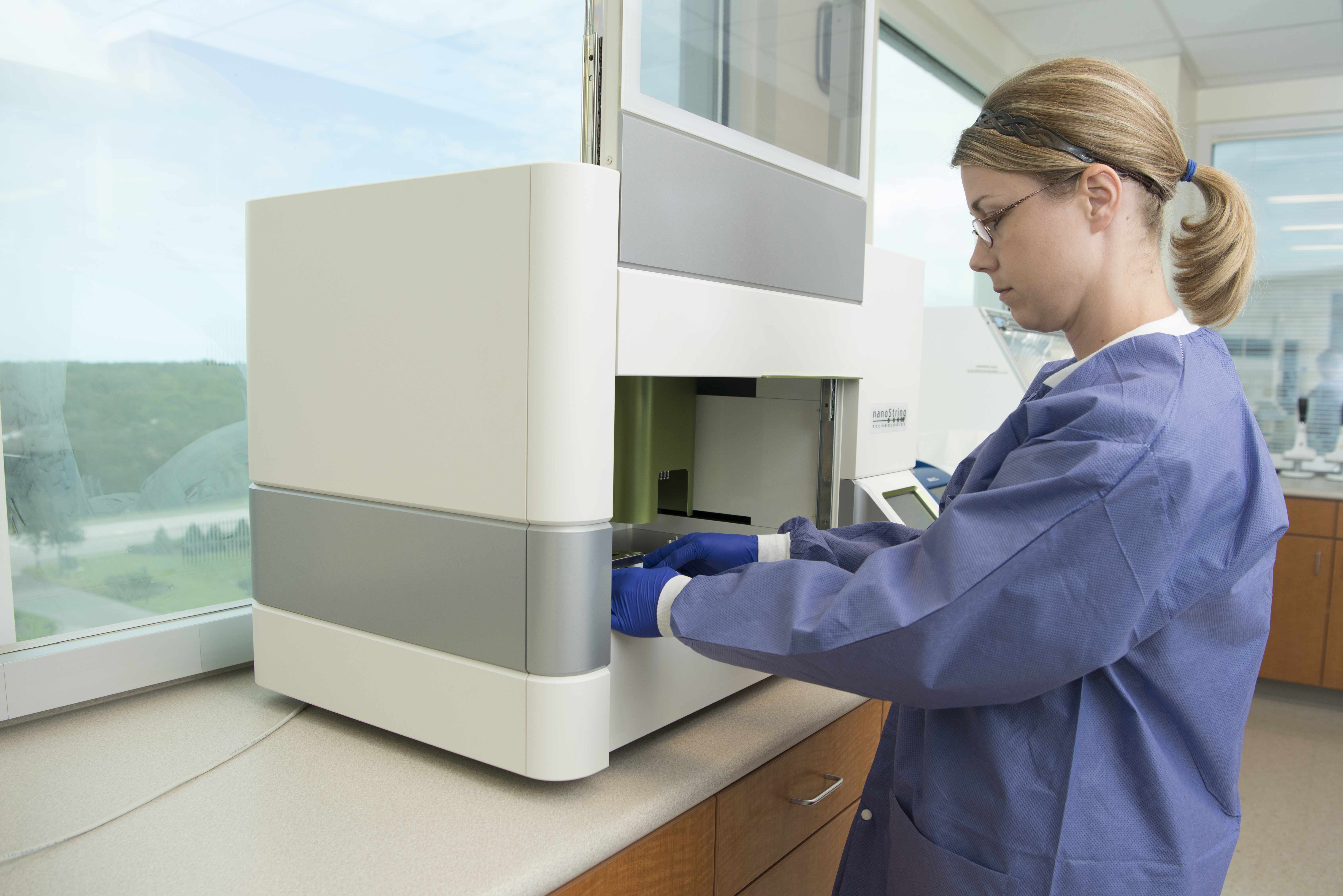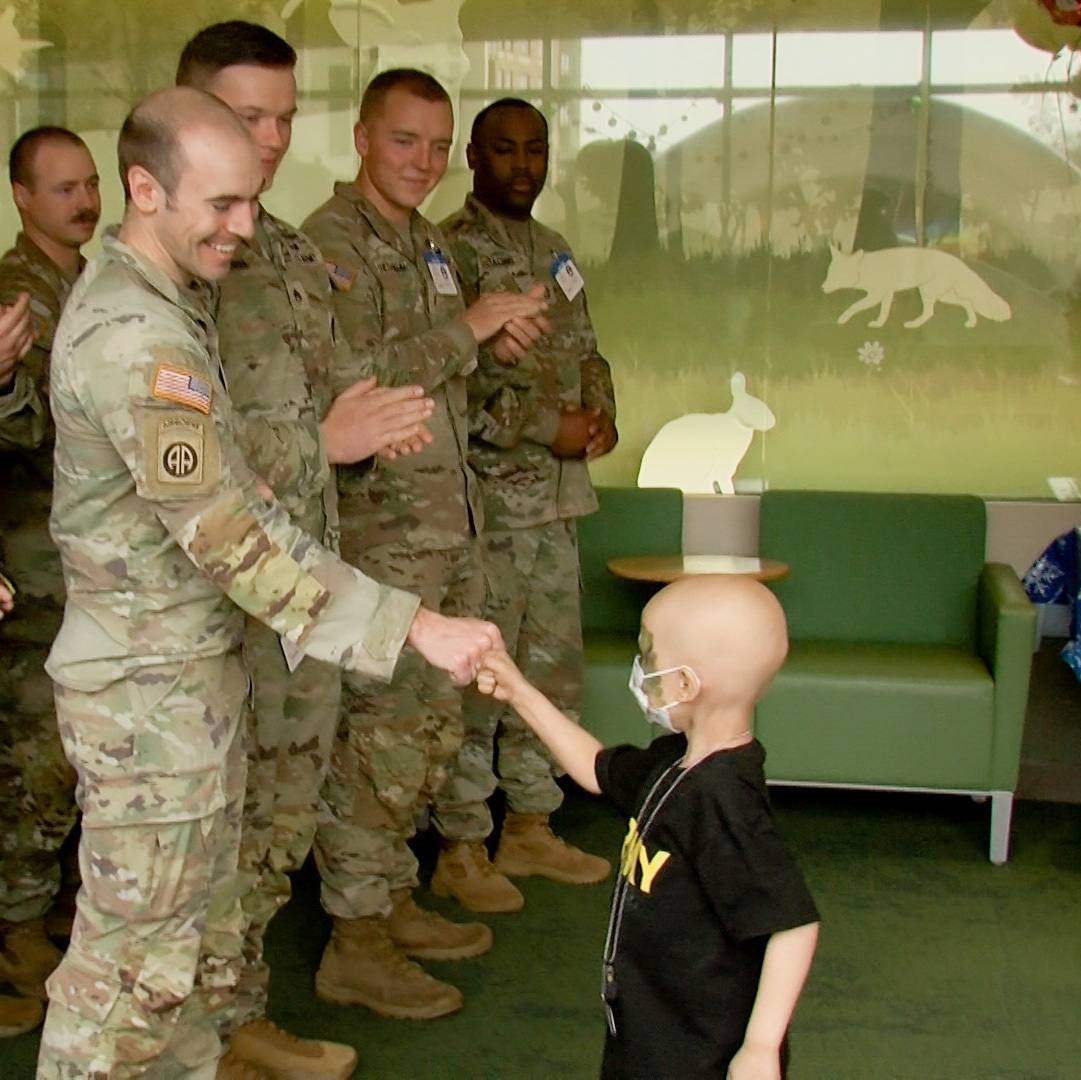-
Mayo Clinic first in U.S. to offer lymphoma genomic diagnostic test for patients
 PHOENIX — Mayo Clinic has created a genetic test to help guide diagnosis and treatment of patients with diffuse large B-cell lymphoma, the most common type of non-Hodgkin’s lymphoma. The Lymph2Cx test helps determine where the lymphoma started, assigning “cell-of-origin” groups using a 20-gene expression-based assay. It is the first test to go into the Mayo practice from the new Mayo Clinic Molecular Diagnostic Arizona Laboratory. The lab enables Mayo physicians and researchers to access new and existing tests rapidly to improve patient care.
PHOENIX — Mayo Clinic has created a genetic test to help guide diagnosis and treatment of patients with diffuse large B-cell lymphoma, the most common type of non-Hodgkin’s lymphoma. The Lymph2Cx test helps determine where the lymphoma started, assigning “cell-of-origin” groups using a 20-gene expression-based assay. It is the first test to go into the Mayo practice from the new Mayo Clinic Molecular Diagnostic Arizona Laboratory. The lab enables Mayo physicians and researchers to access new and existing tests rapidly to improve patient care.
The lymphoma test will first be available to patients at Mayo’s Arizona campus, soon to be followed by the Florida and Minnesota campuses.
Mayo Clinic will be the first site in the country to offer this test to patients. More than 20,000 people in the U.S. are diagnosed with diffuse large B-cell lymphoma each year.
"Diagnostic tests such as the Lymph2Cx test will address an unmet need of cancer patients in the U.S. and worldwide,” says Keith Stewart, M.B., Ch.B., the Carlson and Nelson Endowed Director of the Mayo Clinic Center for Individualized Medicine.
“New tests like this help us identify accurate diagnoses and treatments quickly, saving time and money, and, ultimately, transforming patient care,” Dr. Stewart says.
MEDIA CONTACTS: Colette Gallagher and Jim McVeigh, Mayo Clinic Public Affairs, 507-284-5005, newsbureau@mayo.edu
The Lymph2Cx test was developed by the Lymphoma/Leukemia Molecular Profiling Project. The test is important for prognosis, choice of therapy, and achieving the best outcomes possible for patients with diffuse large B-cell lymphoma, says co-inventor Lisa Rimsza, M.D., a pathologist and director of the Molecular Diagnostic Arizona Laboratory. “This test will accurately provide cell-of-origin information, with a rapid in-laboratory turnaround time,” Dr. Rimsza says. “The application of this test will enable more accurate molecular subtyping and prognostic evaluation of patients with diffuse large B-cell lymphoma, and allow for prospective selection of patients for subtype-specific therapeutic clinical trials.”
The Molecular Diagnostic Arizona Laboratory is a result of a collaborative development project between the Mayo Clinic Department of Laboratory Medicine and Pathology in Arizona, Research leadership in Arizona, and the Mayo Clinic Center for Individualized Medicine.
Dr. Stewart is the Vasek and Anna Maria Polak Professor of Cancer Research Division of Hematology-Oncology at Mayo Clinic.
###
About Mayo Clinic Center for Individualized Medicine
Mayo Clinic Center for Individualized Medicine discovers, translates and applies new findings in genomic research into individualized medicine products and services for patients everywhere. For more information, visit mayoresearch.mayo.edu/center-for-individualized-medicine.
About Mayo Clinic
Mayo Clinic is a nonprofit organization committed to clinical practice, education and research, providing expert, whole-person care to everyone who needs healing. For more information, visit http://www.mayoclinic.org/about-mayo-clinic or https://newsnetwork.mayoclinic.org/.
Related Articles







